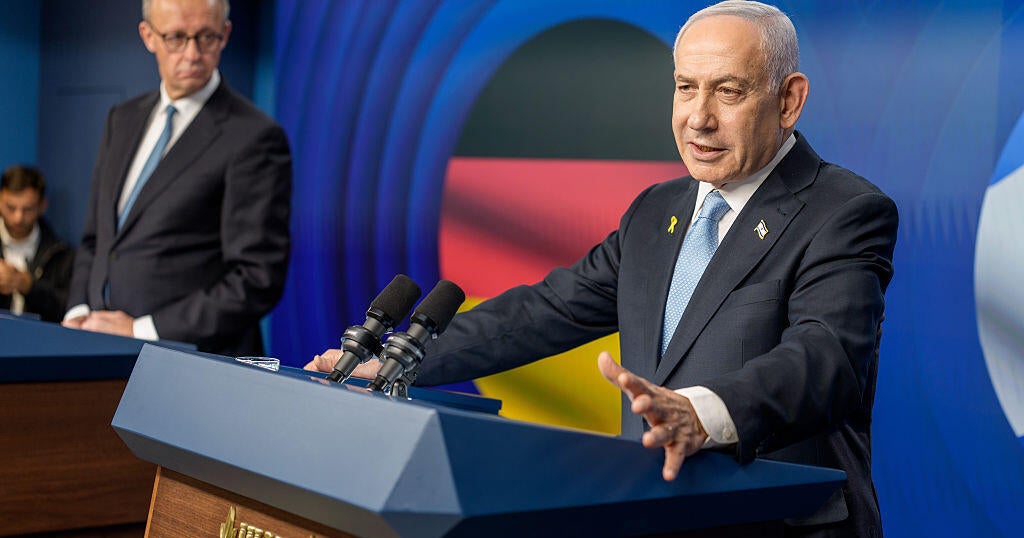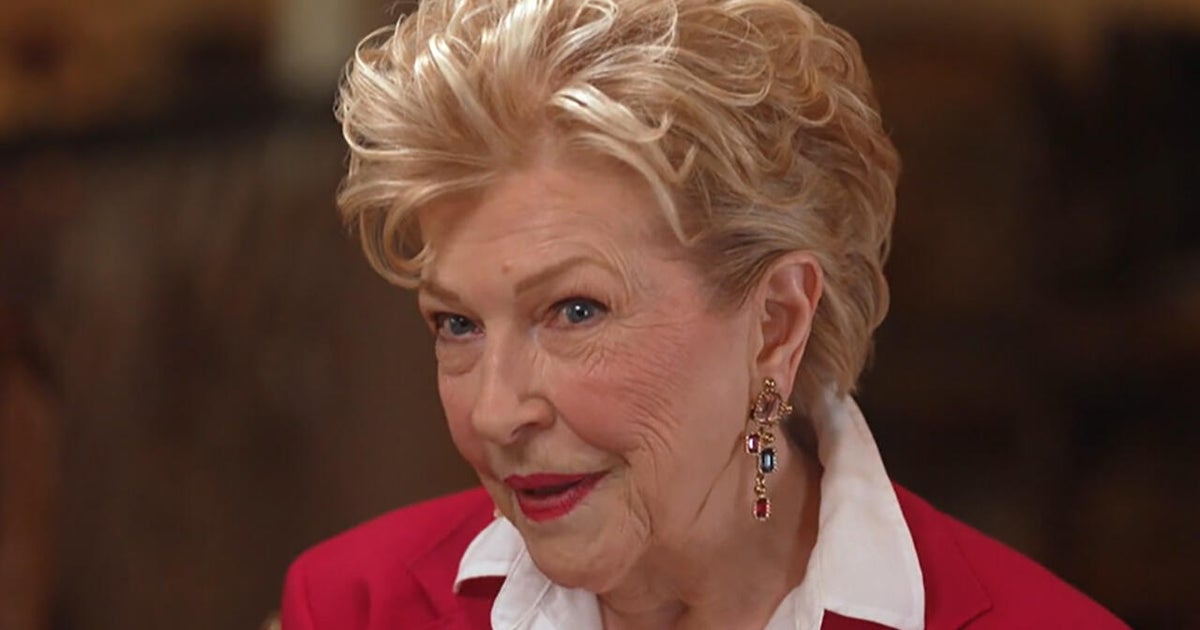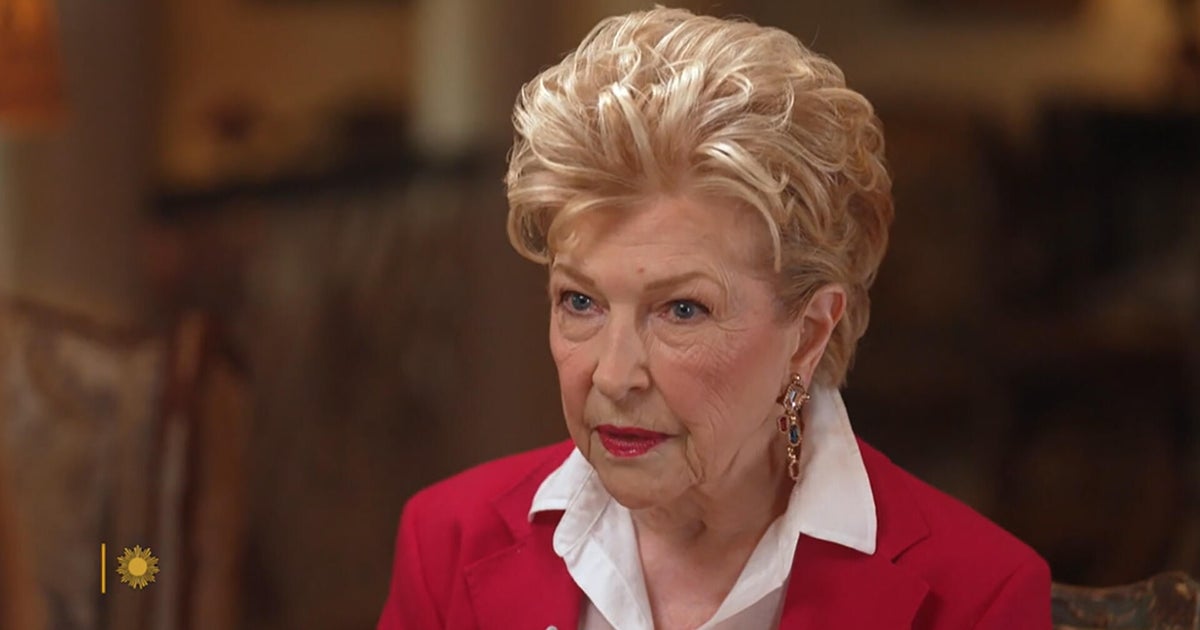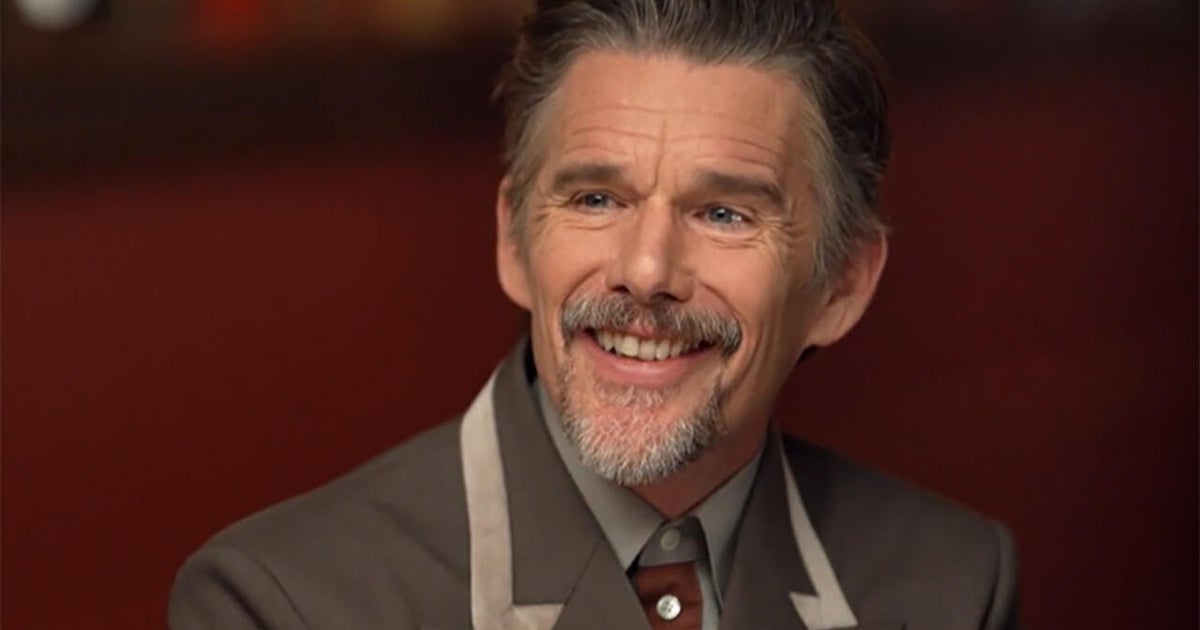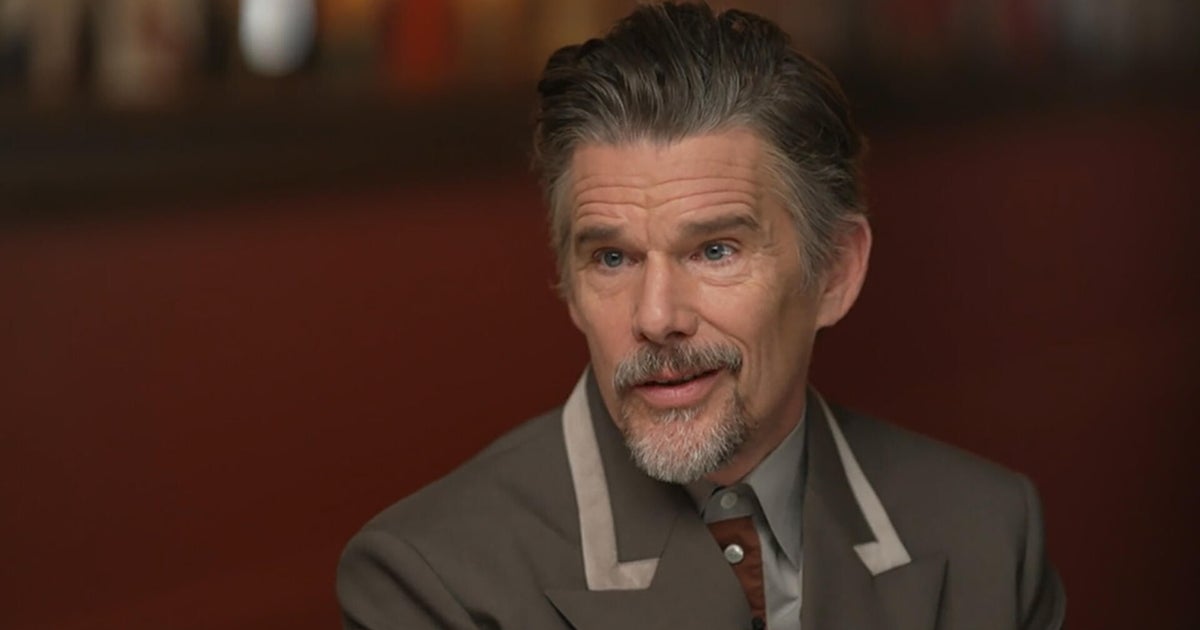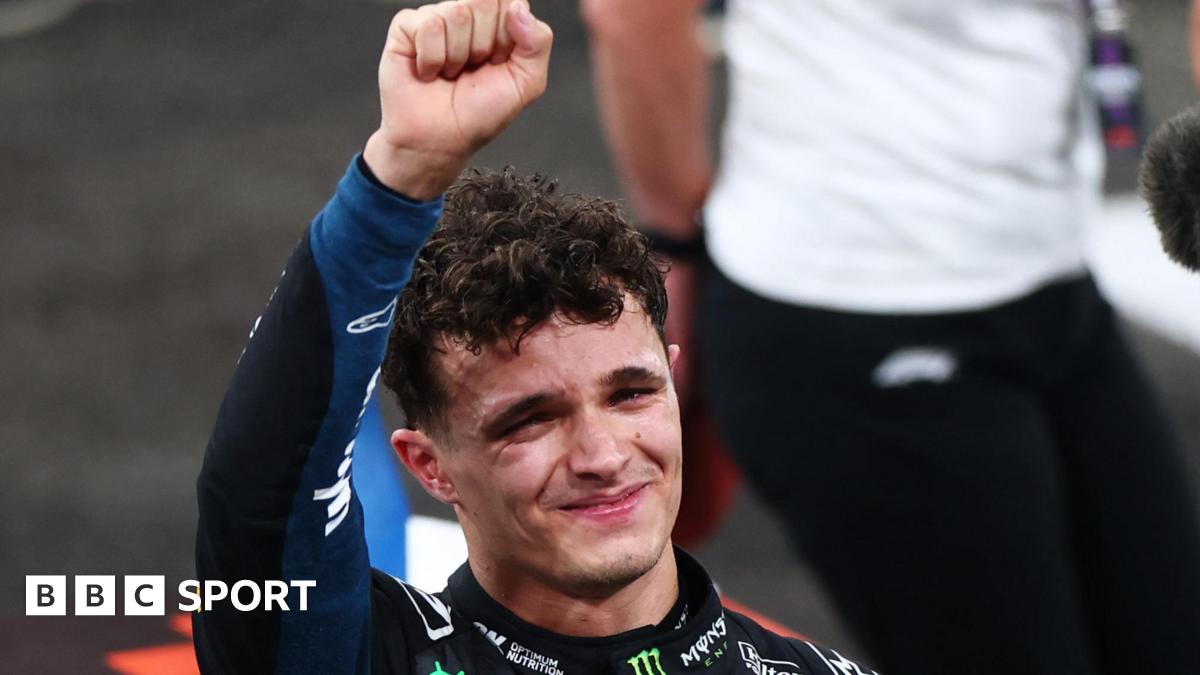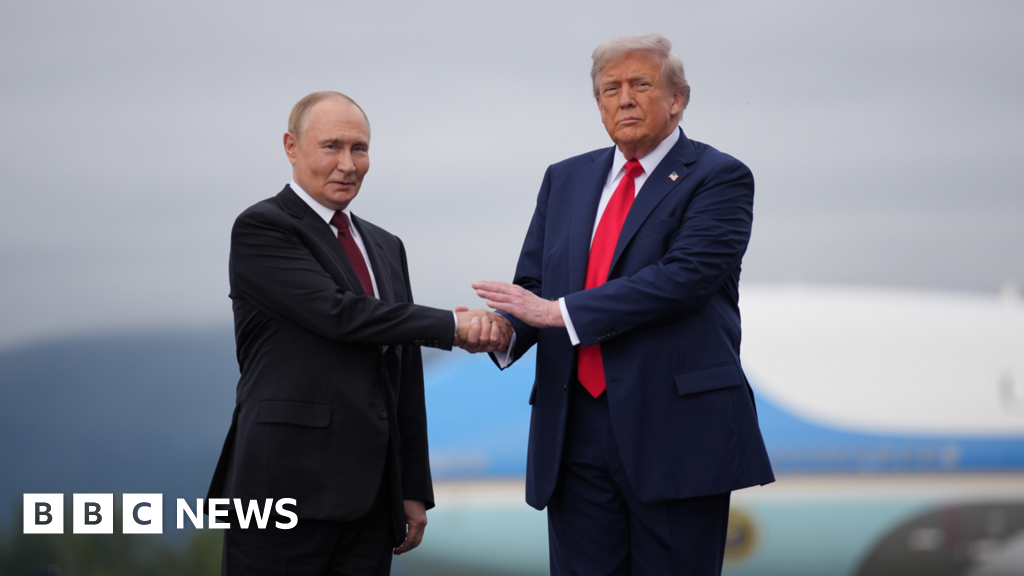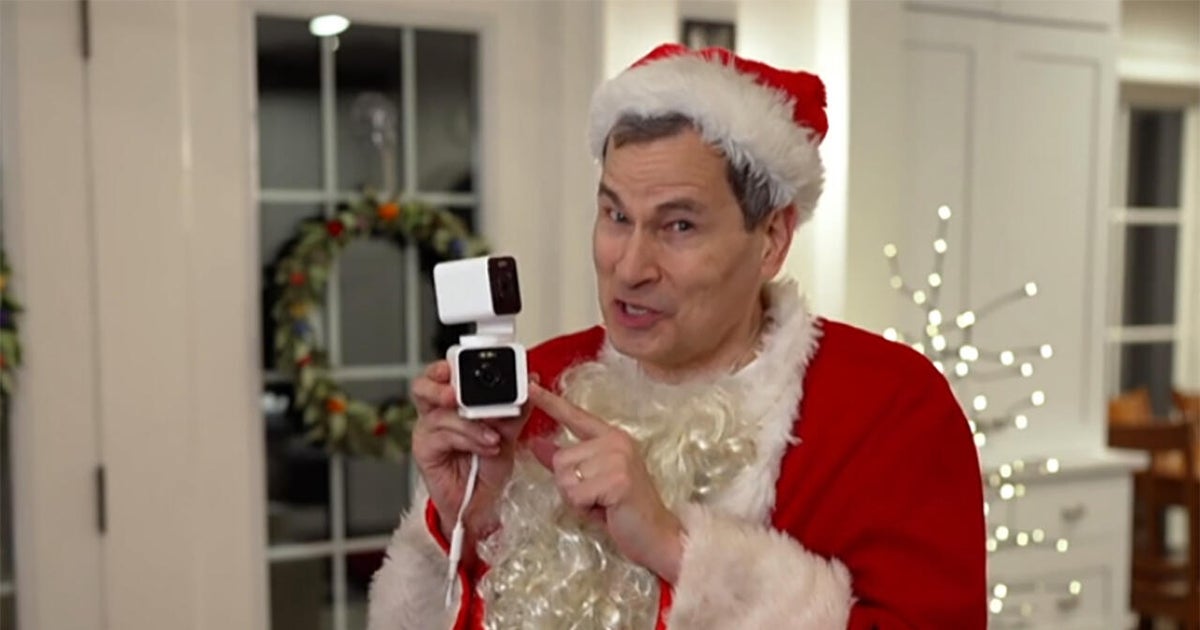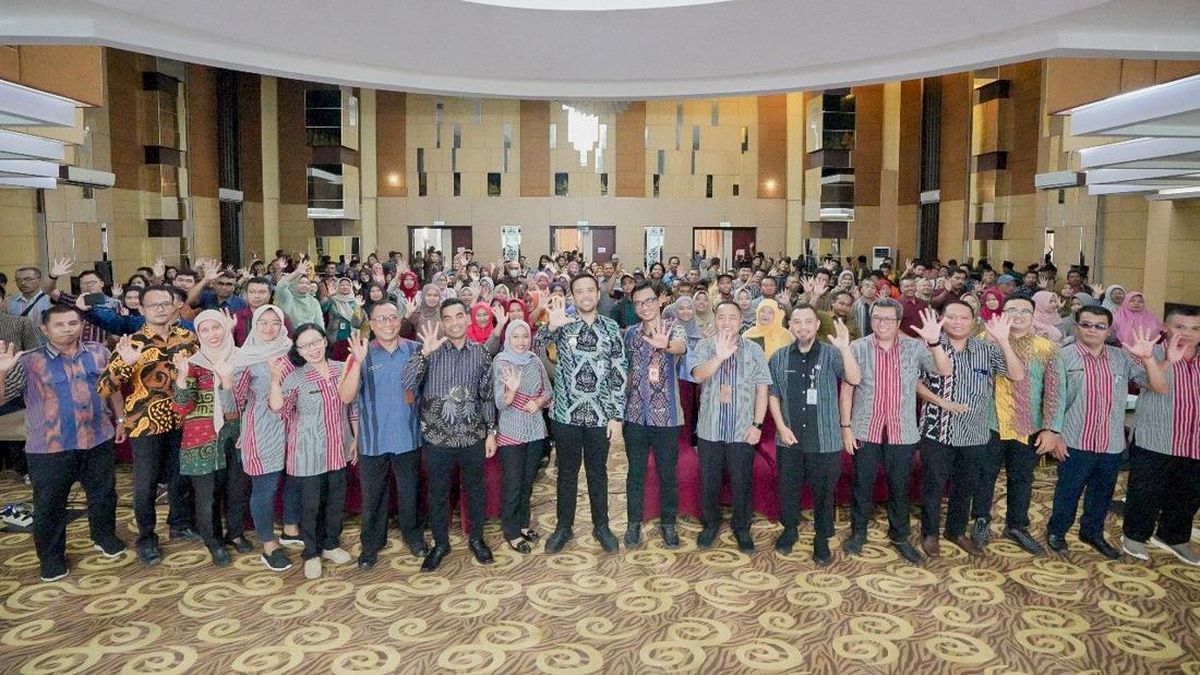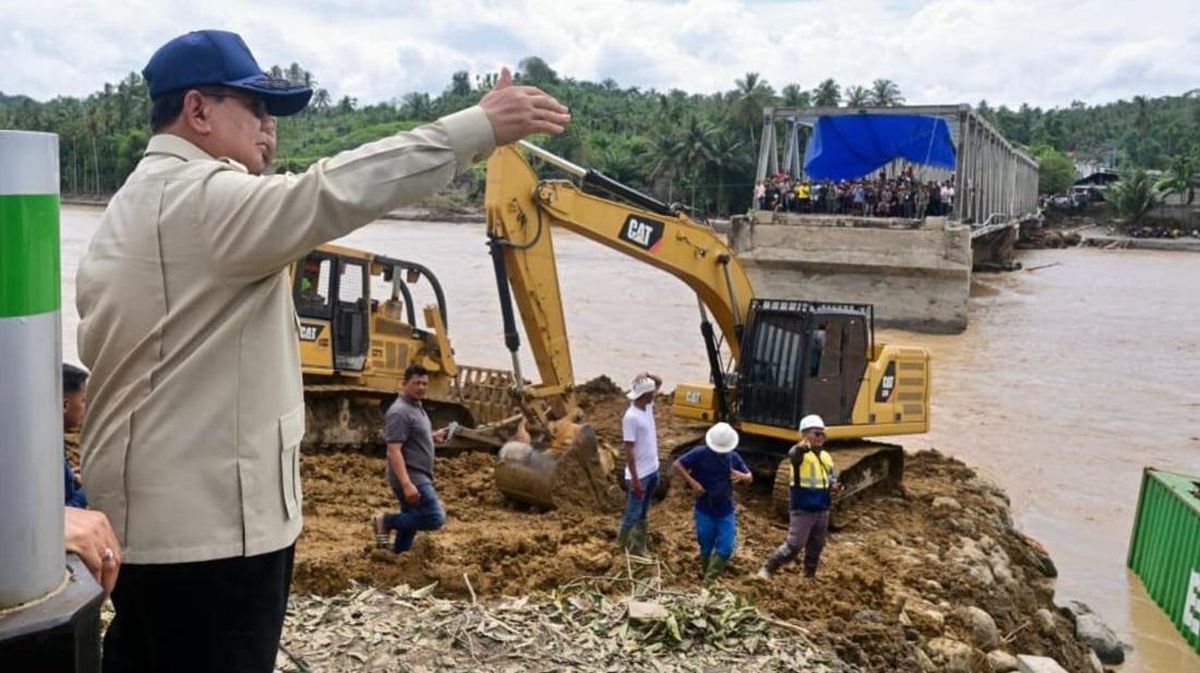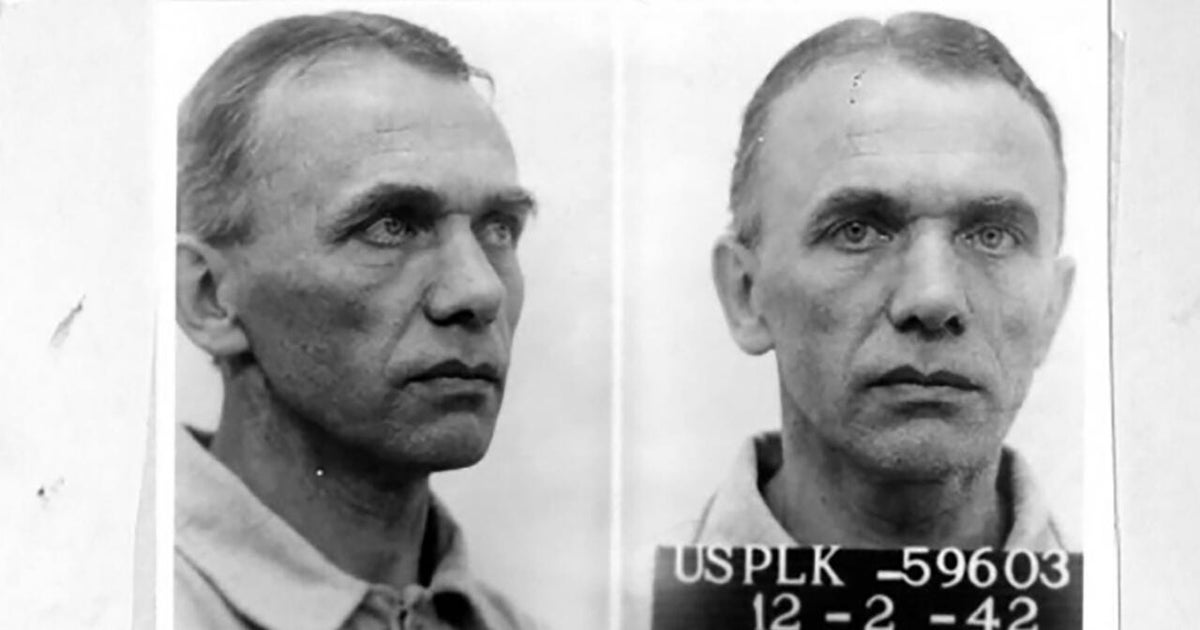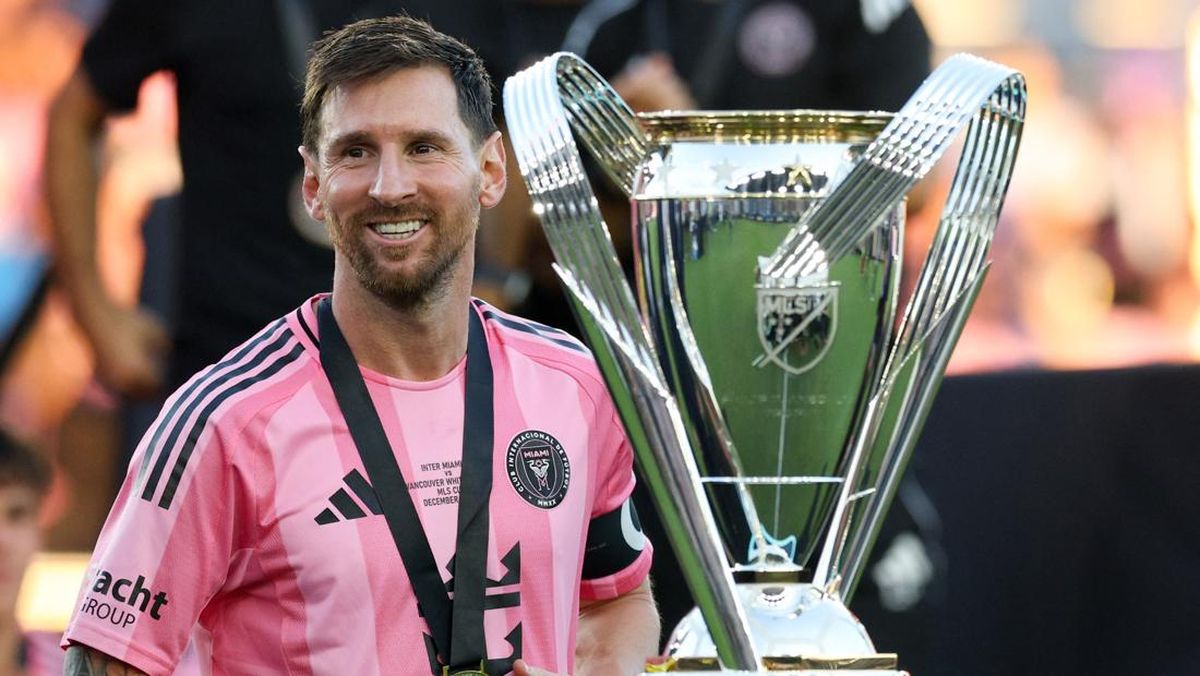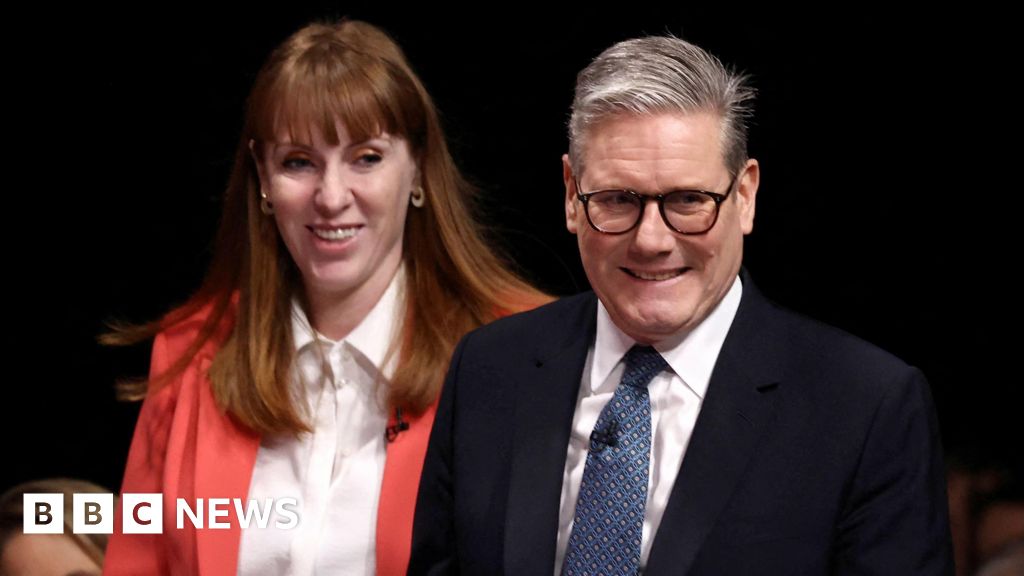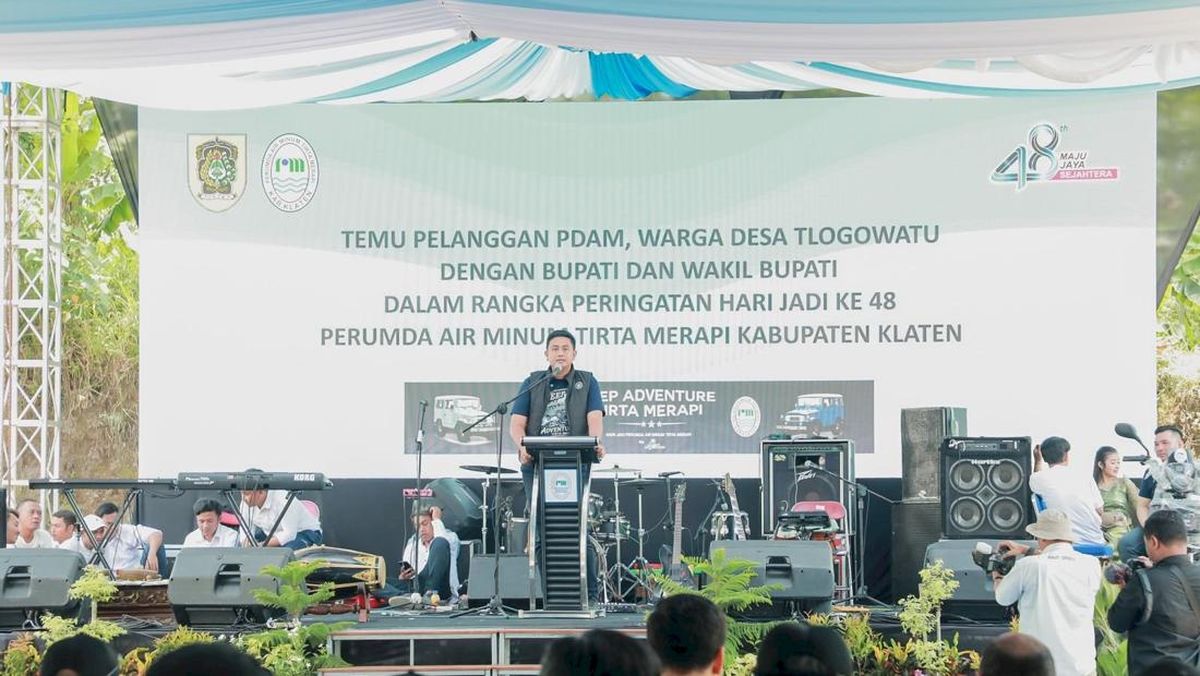Hungary's far-right, nationalist leader Viktor Orbán has hailed President Trump's announcement that he'll hold a second summit with Russian President Vladimir Putin, to discuss the war in Ukraine, in Budapest, the Hungarian capital, as "great news for the peace-loving people of the world."
Orbán is one of the very few European leaders who has kept close ties with Putin since Russia launched its full-scale invasion of Ukraine in February 2022.
He is also a key ally of Mr. Trump, having built a close relationship with the president over many years, helping to turn himself into a favorite European figure on the American right.
"The planned meeting between the American and Russian presidents is great news for the peace-loving people of the world. We are ready!," Orbán - whom the European Union has accused of turning Hungary into an autocracy - said in a social media post on Thursday. "Preparations for the USA-Russia peace summit are underway. Hungary is the island of PEACE!"
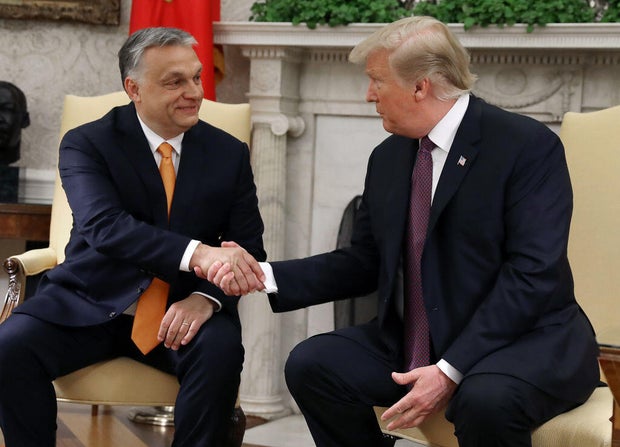 President Trump shakes hands with Hungarian Prime Minister Viktor Orban during a meeting in the Oval Office on May 13, 2019.
Mark Wilson / Getty Images
President Trump shakes hands with Hungarian Prime Minister Viktor Orban during a meeting in the Oval Office on May 13, 2019.
Mark Wilson / Getty Images
Mr. Trump is set to meet Ukrainian President Volodymyr Zelenskyy at the White House on Friday following a long phone call he had Thursday with Russia's leader. "I believe great progress was made," Mr. Trump wrote Thursday on Truth Social regarding his conversation with Putin.
The Kremlin said in a statement Friday that Orbán had spoken with Putin on the phone to express Hungary's "readiness to provide conditions" for the upcoming summit.
The date for the Trump-Putin summit in Budapest has not been confirmed, though Mr. Trump said Thursday that it would likely take place within a couple weeks.
It will be the two leaders' second bilateral meeting this year, following in-person talks in Alaska in August.
That initial effort by Mr. Trump to end the Ukraine war yielded no tangible results. Putin has so far declined the president's urging to hold a three-way meeting with Ukraine's Volodymyr Zelenskyy. Meanwhile, the Russian military has continued its aerial bombardment of Ukrainian cities, targeting infrastructure and killing civilians.
Before his announcement on Thursday, President Trump had voiced increasing frustration with Putin's intransigence on negotiating an end to the war.
"I don't know why he continues with this war," Mr. Trump told reporters earlier this week in Washington. "He just doesn't want to end that war."
The Kremlin, in a Thursday statement attributed to Putin aide Yury Ushakov, said the Russian leader had given Mr. Trump during their phone call "a detailed assessment of the current situation," which included noting that on the ground in Russian-occupied eastern Ukraine, "the Russian Armed Forces hold full strategic initiative along the entire line of contact."
Why Ukraine may be disappointed by Hungary as a summit venue
Orbán's government has often taken an adversarial stance toward Zelenskyy and the Ukrainian cause since Russia launched its full-scale invasion three years ago.
While Hungary is a member of both the European Union and the U.S.-led NATO alliance, Orbán has been a fierce critic of Europe's financial and military support for Ukraine's efforts to repel the Russian invasion. Hungary has halted all sales of weapons to Ukraine since the war began, and Orbán's government has also prohibited weapons from Ukraine's Western partners from transiting through the country.
Earlier this week, Orbán posted a promotional video on social media declaring that "Hungary will follow its own path, protect its sovereignty, refuse to send its money to Ukraine, and remain a haven of peace. We will not pay for wars that are not ours!"
Tension between Orbán and Zelenskyy has escalated dramatically in recent months.
Budapest has fiercely opposed Ukraine's bid to join the European Union — a move Kyiv sees as a vital step in protecting itself against the potential threat of future Russian aggression.
Under EU rules, new states can only be admitted with the unanimous consent of all its existing members.
"Hungary has no moral obligation to support Ukraine's EU accession. No country has ever blackmailed its way into the European Union — and it won't happen this time either," Orbán said earlier this month. "The EU Treaty leaves no room for ambiguity: membership is decided by the member states, unanimously."
Zelenskyy was quoted in May by the Ukrainian Interfax news agency as calling Hungary's opposition to Ukraine's bid "dangerous" for the EU, "because that's the sovereign choice of another country. Just as we have no right to interfere in Hungary's affairs."
Kyiv has also accused Hungary of illegally flying drones into Ukrainian territory. In September, Ukrainian Foreign Minister Andrii Sybiha posted a map on social media of an alleged Hungarian drone incursion with the caption: "Our Armed Forces have gathered all of the necessary evidence, and we are still waiting for Hungary to explain what this object did in our airspace."
Orbán appeared to acknowledge the incursion late last month in an interview on a podcast produced by his far-right Fidesz party, while also questioning Ukraine's independence, echoing a talking point often promoted by the Kremlin.
"Let's suppose they flew a few meters in there [Ukraine], and so what?" Orbán said, according to the Reuters news agency. "Ukraine is not an independent country. Ukraine is not a sovereign country. Ukraine is financed by us, the West gives it funds, weapons."
Sybiha, Ukraine's Foreign Minister, said in a social media post that Orbán's remarks showed he was "intoxicated by Russian propaganda."
While Hungary has participated in imposing several rounds of EU sanctions against Russia since the war started, Orbán has consistently called for greater economic relief for the Kremlin.
"It's time to talk about sanctions! Did they bring the war to an end? No. Did they cripple the [Russian] economy? No. Did Europe manage to replace Russian energy from other affordable sources? No," Orbán said in January. "The sanctions engineered by the Brussels bureaucrats achieved one thing: they destroyed the competitiveness of the European economy."
Budapest has defied other EU nations' efforts to wean themselves off a years-long reliance on Russian oil and gas — despite repeated calls from both Mr. Trump and Zelenskyy to do so to squeeze Putin's ability to fund the war.
Research from the Center for the Study of Democracy, an independent policy think tank, shows Hungary has actually increased its reliance on Russian energy over the past three years. Hungary's purchases of Russian crude oil increased from 61% of its total imports pre-invasion, to 86% in 2024, the study showed.
Orban is a key Trump ally
While Hungary is not perceived as friendly to Ukraine, President Trump will arrive to a warm welcome in Budapest if the summit goes ahead.
Orbán was the first and only EU leader to publicly endorse Mr. Trump's first successful bid for the U.S. presidency in 2016, and the two have had warm ties ever since.
Orbán, who according to Human Rights Watch has used his party's supermajority in the Hungarian parliament to undermine the independence of the country's judiciary, crack down on independent media, demonize migrants and discriminate against LGBTQ people, was also effusive in praising Mr. Trump's return to the Oval Office in January.
"The Trump tsunami swept through the entire world," Orbán said earlier this year. "It gave back hope to the world. We are no longer suffocating in the woke sea."
In 2022, the EU said Hungary, under Orbán's leadership, could no longer be considered a "full democracy," calling it a "hybrid regime of electoral autocracy."
Mr. Trump has also prolifically praised Orbán's strongman leadership, calling him "a great man and a very special person."

